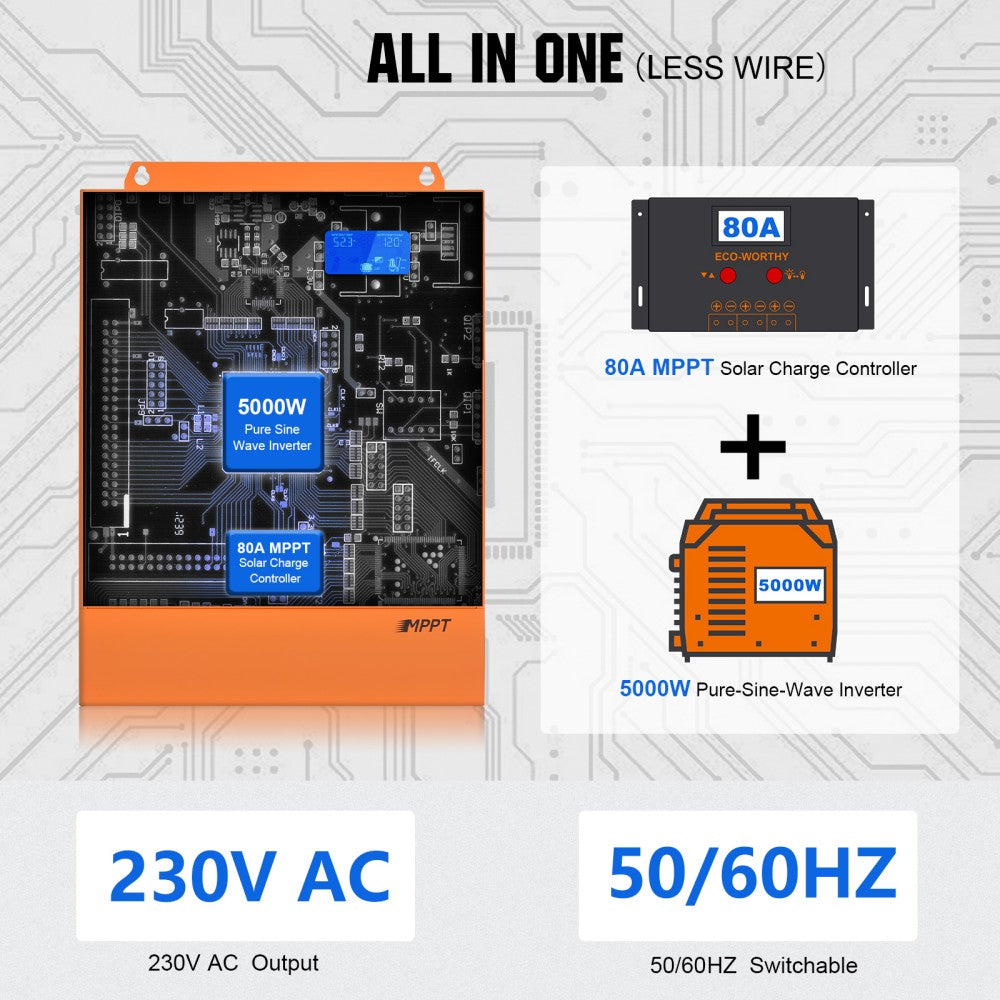Understanding the Role of Inverters in Solar Panel Systems: How They Work and Why They're Essential
الجسم
In the realm of renewable energy, inverters for solar panels play a pivotal role in converting solar energy into usable electricity. But what exactly does an inverter do, and why is it essential for solar panel systems? This article delves into the intricacies of inverters, their functionality, and their significance in optimising solar energy utilisation.

The Functionality of Inverters for Solar Panels
At its core, an inverter for solar panels is a device that transforms the direct current (DC) generated by solar panels into alternating current (AC), which is the form of electricity used in homes and businesses. Without this conversion, the energy harnessed from sunlight would remain unusable for most electrical appliances.
- DC to AC Conversion: The primary function of an inverter is to convert DC electricity into AC electricity.
- Grid Connection: Inverters allow solar systems to connect to the electrical grid, enabling excess energy to be fed back into the grid.
- Monitoring: Many modern inverters come equipped with monitoring capabilities, allowing users to track energy production and system performance.
Types of Inverters for Solar Panels
There are several types of inverters available, each serving different needs and preferences:
- String Inverters: These are the most common type, connecting multiple solar panels in a series.
- Microinverters: Installed on each solar panel, microinverters optimise the performance of individual panels.
- Power Optimisers: These devices work with string inverters to enhance the efficiency of each panel while maintaining a centralised inverter system.
Why Inverters Are Essential for Solar Panel Systems
The importance of inverters in solar panel systems cannot be overstated. They not only facilitate the conversion of energy but also enhance the overall efficiency of solar installations. Here are some reasons why they are indispensable:
- Efficiency: Inverters maximise the amount of usable energy generated by solar panels.
- Safety: They include safety features that protect the system from electrical faults.
- Longevity: High-quality inverters can significantly extend the lifespan of solar systems by ensuring optimal performance.
Choosing the Right Inverter for Your Solar Panel System
When selecting an inverter for solar panels, consider factors such as system size, energy needs, and budget. It is advisable to consult with professionals or refer to reputable sources to make an informed decision. For a comprehensive range of solar inverters, you can explore  .
.
In conclusion, understanding the role of inverters in solar panel systems is crucial for anyone looking to harness solar energy effectively. By converting DC to AC, ensuring safety, and maximising efficiency, inverters are indeed the unsung heroes of solar technology. Investing in the right inverter can lead to a more sustainable and cost-effective energy solution.










تعليقات